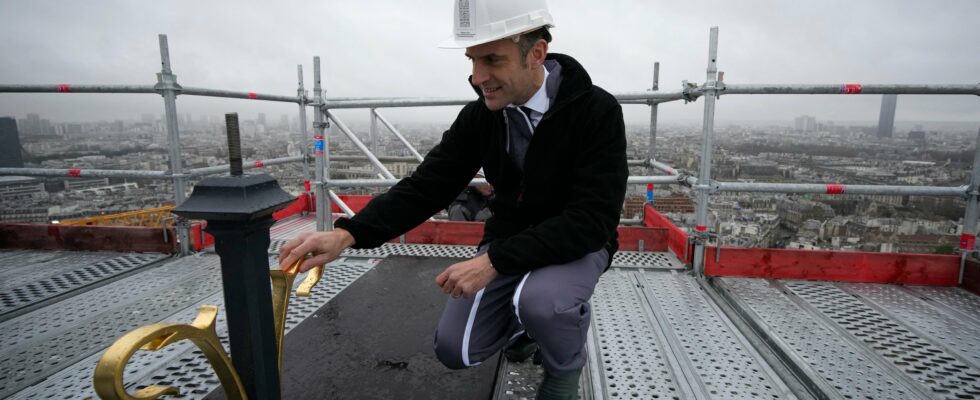Monday April 15, 2019. The fire ravages Notre-Dame de Paris. Very quickly, the flames destroyed the spire, the roofs, the framework. Stupor and sadness. The firefighters are mobilizing like never before. Donors too. Five years, says the president, to rebuild. Five years? It’s tomorrow. We laugh. Is he serious?
Wednesday September 13, 2017. This time, it’s the right one. In Lima, Peru, the candidacy of the City of Lights is (finally) accepted by the International Olympic Committee to organize the events of the 33rd Olympiad, in 2024, one hundred years after the Paris Olympic Games. Anne Hidalgo sheds a tear, the countdown begins: there are six years, ten months and thirteen days left before the opening ceremony. The puzzle is logistical, political, financial and administrative. The media are announcing a disaster scenario…
Notre-Dame and the Olympic Games: the two great French triumphs of the year, which would (almost) make us forget the dissolution and the motion of censure. Two impossible challenges, and yet won hands down, thanks to political will, a certain dose of genius and ultra-professionalism (thanks to Tony Estanguet and the late General Jean-Louis Georgelin), and flawless mobilization of the country , but also thanks to two essential laws which made it possible to deviate from existing standards, that of March 2018 relating to the organization of the 2024 Olympic and Paralympic Games and that of July 2019 for catering and the conservation of Notre-Dame de Paris.
Entrepreneurs dream of it. Get out of the administrative mille-feuille that hinders the life of the country. What if exemptions became the norm? What if what was done for the Olympics and Notre-Dame were generalized to make the daily lives of artisans, farmers and entrepreneurs easier? The theme is not new: in 1947, an “axe commission”, convened by the government of Paul Ramadier, already dreamed of an “administrative reform” and considered cutting 50,000 positions in the public service. Du Milei – named after the very liberal Argentine president – before his time, in the middle of the Fourth Republic. Less sharp, the Attal and Barnier governments have also put administrative simplification at the top of the reform pile. A bill is also ready: it was to pass before the Hemicycle at the beginning of 2025, in any case this was the timetable planned before the vote on the motion of censure… The “France simplification” program consists of unblock projects in the field: it is going in the right direction. Faced with the wall of forms and administrative bundles, there remains one level of liberation to reach: that of the emergency law, used for the Olympics or Notre-Dame. A secret weapon of simplification essential to accelerate the growth of certain strategic sectors, such as nuclear power or industry. Which can also be entrusted to prefects, by considerably relaxing their power of exemption. A decree signed by Michel Barnier has already been drawn up. All that remains is to pass it on. Too late ?
.
